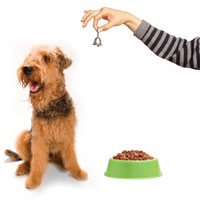Observation
The Perils of Trying to Unlearn
 Some psychological scientists may be drawing bigger conclusions than they should from their data, say the authors of a new paper published in Perspectives on Psychological Science, a journal of the Association for Psychological Science. Studies that claim to reverse some learned response may not be reversing a life-long response, but are instead probably showing another kind of learning.
Some psychological scientists may be drawing bigger conclusions than they should from their data, say the authors of a new paper published in Perspectives on Psychological Science, a journal of the Association for Psychological Science. Studies that claim to reverse some learned response may not be reversing a life-long response, but are instead probably showing another kind of learning.
“It came about because I kept encountering a variety of studies with very different questions, areas, and fields of interest,” says Marc Coutanche of the University of Pennsylvania, who cowrote the paper with past APS Board Member Sharon Thompson-Schill. “But one thing they had in common was that they were interested in some sort of association that people might learn over their lifetime.”
In each study Coutanche describes in the new paper, the scientists tried to change that association. For example, researchers got familiar names to feel less familiar by changing how clearly they could be read.
Coutanche suspected that there might be something else going on when people seemed to have lost an association. Research on associations goes back to Pavlov’s famous experiments in which he taught a dog to expect food at the sound of a bell; eventually, just the ringing bell was enough to get the dog to salivate. In more than a century of research since then, scientists have learned that getting a dog — or human — to forget an association once they’ve learned it is really hard. “If you’re reversing a lifetime of training and influence in 45 minutes in the lab,” says Coutanche, “that would be shocking. And in fact it’s probably not the case.”
“We know that if someone comes in and there’s a striking and interesting change in their response, that shows us something has been learned,” Coutanche says. “The key question is, what? What has been learned?” For the new paper, Coutanche delved into the field of associative learning to find some suggestions for what people are learning. For example, the fact that the subjects are encountering the situation in a lab instead of in the real world might set the stage for learning a new association. Or they might be learning to associate some other cue in the lab environment with a feeling.
It may not always matter what people are learning if they’re changing their reactions. In clinical practice, for example, the goal is often to give people new associations; when you’re helping someone get over a phobia, for example, the precise mechanism is less important than the result. Whether they’re changing an old association or learning a new one, as long as they don’t turn to jelly in the presence of a spider, the therapy is a success. But for psychologists who are doing science, Coutanche says, “We need to be careful about drawing strong interpretations of these kind of studies.”





APS regularly opens certain online articles for discussion on our website. Effective February 2021, you must be a logged-in APS member to post comments. By posting a comment, you agree to our Community Guidelines and the display of your profile information, including your name and affiliation. Any opinions, findings, conclusions, or recommendations present in article comments are those of the writers and do not necessarily reflect the views of APS or the article’s author. For more information, please see our Community Guidelines.
Please login with your APS account to comment.